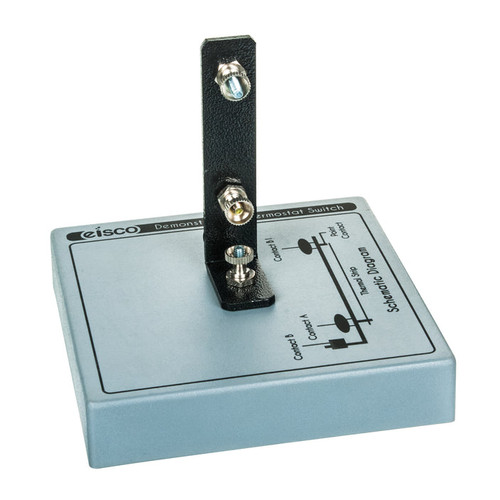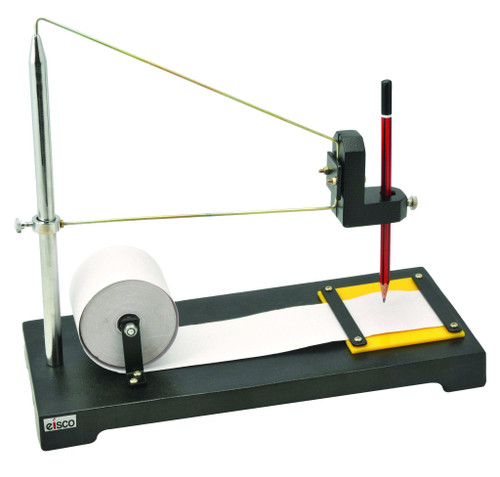Product Overview
-
- ORBITER MODEL || This three dimensional model represents the Earth's changing position with regard to the Sun and the moon
- EARTH, SUN & MOON || Model features a 5.9" diameter sun, 4" diameter earth and a 1" diameter moon. Both the earth and the moon are situated on metal rods, and can be moved to show relative motion and position
- DEMONSTRATES SUNLIGHT || Model is equipped with LED's that is located inside of the Sun to show the effect that sunlight has on the earth and the moon. Requires two AA batteries (not included)
- STURDY BASE || Mounted on a sturdy base, which is labeled with each month of the year, allowing learners to explore the relative positions of the earth both monthly and seasonally
- EXPERIMENT GUIDE INCLUDED || Model includes a comprehensive experiment guide that includes three activities, worksheets and various topics for further exploration, as well as Solstice and Equinox charts
This three dimensional model allows students to study the motion of the Earth and Moon around the sun, and demonstrates the science behind phenomena such as seasons, phases of the moon, eclipses, and tides. During Earth's one-year period of revolution, the tilt of its axis results in changes in the angle of incidence of the Sun's rays at a given latitude. These changes cause variation in the heating of the surface which produces seasonal variation in weather.
The model features a 5.9" Sun, a 4" diameter Earth and a 1" diameter Moon. The Earth can be manually moved to show its rotation around the Sun, and the Moon can be moved to show its rotation around the Earth. The Sun has LED inside which demonstrates the effect that sunlight has on the Earth and Moon. Requires two AA batteries (not included).
The sturdy base features a chart labeling each month and the seasons of both the Northern & Southern hemisphere. The model stands 12.25" in total height, 16.25" wide and 4.75" in length.
Model includes a comprehensive experiment guide that includes three activities, worksheets and various topics for further exploration, as well as Solstice and Equinox charts.











